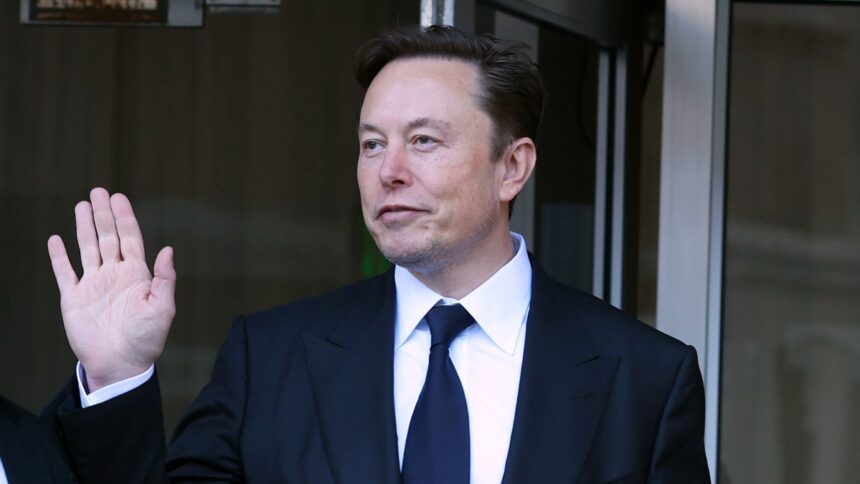Mainstream social media platforms may face limits on their skill to take down impartial journalism that violates their phrases and circumstances underneath a proposal agreed by European Union lawmakers yesterday.
In a vote Tuesday, the European parliament set its negotiating place for upcoming talks with the Council on the bloc’s draft Media Freedom Act — taking intention at what MEPs referred to as “arbitrary selections by huge platforms.”
The text adopted by MEPs expands on the European Fee’s unique proposal by setting out a requirement for bigger platforms (i.e., very massive on-line platforms, or VLOPs, with greater than 45 million regional energetic month-to-month customers) to provide media companies suppliers a heads-up of a deliberate takedown of their content material — giving them 24 hours to answer to the objections earlier than any restriction or suspension is imposed.
The unique Fee textual content merely urges these platforms to contemplate freedom and pluralism of media, act diligently and be clear after they train editorial duty — that’s, by taking down journalism they deem incompatible with their phrases and circumstances — after which, after the very fact, present an evidence of their actions to media service suppliers “as early as potential.”
“To make sure that content material moderation selections by very massive on-line platforms don’t negatively have an effect on media freedom, MEPs name for the creation of a mechanism to handle content material takedown orders,” the parliament wrote in a press release. “In keeping with MEPs, platforms ought to first course of declarations to tell apart impartial media from non-independent sources. Media ought to then be notified of the platform’s intention to delete or limit their content material alongside a 24-hour window for the media to reply. If after this era the platform nonetheless considers the media content material fails to adjust to its phrases and circumstances, they’ll proceed with deleting, limiting or referring the case to nationwide regulators to take the ultimate choice immediately. Nevertheless, if the media supplier considers that the platform’s choice doesn’t have adequate grounds and undermines media freedom, they’ve proper to deliver the case to an out-of-court dispute settlement physique.”
Within the upcoming trilogue talks involving the Fee, the bloc’s co-legislators, the parliament, and the Council might want to negotiate to discover a compromise on a last textual content so the form of the legislation shouldn’t be mounted in stone but. And it stays to be seen whether or not the parliamentarians’ push for the Act to go additional in safeguarding media from arbitrary selections by bigger platforms stands or falls.
The parliament vote was a reasonably substantial one in favor of the amended file — with 448 votes in favor versus 102 towards (and 75 abstentions).
The Fee proposed the Media Freedom Act again in September 2022. The bloc’s lawmakers argue laws is required to guard media pluralism and independence within the trendy period in gentle of a wide range of rising pressures on the sectors — together with in relation to the digital transformation of the media business.
Since then it’s honest to say we’ve seen an increase in extremely seen arbitrary selections, within the wake of Elon Musk’s takeover of Twitter (now X). Final 12 months, the billionaire proprietor of the social media platform banned a lot of journalists who had written about him — because it turned out as a result of he was sad they’d reported on an account that tweeted the placement of his non-public jet. That motion earned him a swift rebuke from the EU, which dubbed the arbitrary suspensions “worrying” — pointing again to the Media Freedom Act as being supposed to strengthen the bloc’s protections for media and elementary rights in such eventualities.
The general public rebuke didn’t cease Musk. He has continued to focus on conventional media throughout his erratic flip in command of X, saying a plan to cease displaying headlines on information articles this summer season, for instance (almost definitely together with his eye on attempting to evade making copyright funds to information publishers for displaying snippets of their content material); and throttling the load time of hyperlinks on the platform to New York Instances and Reuters articles, in addition to to competing social networks.
Previous to Musk, legacy Twitter additionally had a few of its personal run-ins with the media, in fact. Corresponding to its controversial choice three years in the past to dam the sharing of hyperlinks or photographs associated to a New York Put up article about claimed emails by Hunter Biden discovered on a laptop computer — which led to it amending its hacked materials coverage. Fb additionally restricted sharing of the Hunter Biden laptop computer story at a time when issues about disinformation focusing on the U.S. elections had been driving excessive.
However Musk’s actions on the helm of Twitter/X vis-à-vis journalists and media companies have appeared way more arbitrary and/or pushed by a private dislike of conventional media. That hate, mixed with apparently limitless sources to spend on taking arbitrary actions no matter in the event that they hurt consumer belief and advertiser confidence, doesn’t bode properly for entry to impartial journalism on X. So the bloc’s legislative transfer seems to be well timed. Albeit, whether or not the deliberate legislation will show efficient at reining in Musk is one other matter.
X underneath Musk is charting a reckless collision course with the EU over the Digital Providers Act (DSA), the confirmed pan-EU legislation that designates the aforementioned VLOPs — regulating how these bigger platforms (together with X) ought to reply to stories of unlawful content material and different points, in addition to obligating them to evaluate and mitigate systemic dangers like disinformation.
Musk’s response to this current pan-EU legislation — which carries penalties of as much as 6% of world annual turnover for breaches, and even the danger of a service being blocked within the area — has to date summed to him thumbing his nostril at regulators. Examples embrace Musk slashing headcount in key areas, together with content material moderation, belief and security and election integrity; ending coverage enforcements on COVID-19 disinformation; eradicating sure mainstream disinformation reporting instruments for customers; and pulling the platform out of the bloc’s Disinformation Code (which is linked to DSA compliance).
Musk can be keen on posting/amplifying disinformation and conspiracy theories himself. And he has inspired hateful follower pile-ons of individuals he takes a dislike to, together with the previous Twitter head of belief and security, Yoel Roth. (Or, extra just lately, a California man who’s suing him for defamation — accusing Musk of spreading false claims about him.)
So whether or not an adjunct to the present EU content material moderation legislation can persuade Musk to bend to the bloc’s rulebook seems to be questionable. Though reining in Huge Tech’s most erratic and deep-pocketed chief is prone to be a regulatory marathon (grit, stamina, technique, and so on.), not a dash.
Main platforms, in the meantime, typically stay against the parliament’s proposal to provide media companies discover of takedowns of content material that violates their T&Cs. However in fact tech platforms aren’t famend for backing checks on platform energy.
Following yesterday’s vote by MEPs to affirm their negotiating mandate on the Media Freedom Act, Huge Tech foyer group, the Laptop & Communications Trade Affiliation (CCIA), hit out on the “media exemption” — framing it as “controversial” and claiming the availability dangers enabling rogue actors to unfold disinformation. “It is a main setback within the combat towards disinformation,” claimed CCIA Europe’s senior coverage supervisor, Mathilde Adjutor, in a press release. “The media exemption will empower rogue actors, creating new loopholes to unfold pretend information relatively than fixing something. We are able to solely hope this disinformation loophole can be closed through the trilogue negotiations between the EU establishments.”









